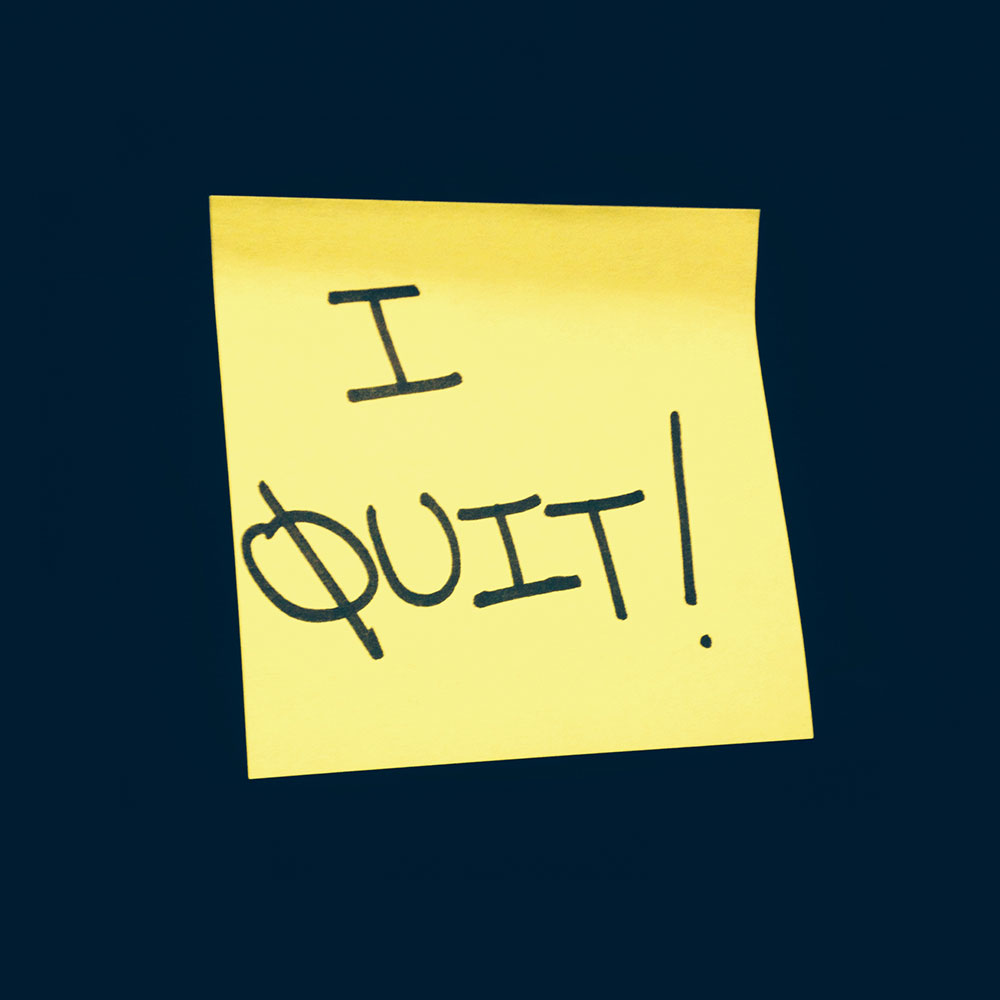When Should You Quit Your Dayjob?
Life outside the cubicle is fantastic. No more managers making absurd demands. No more annoying co-workers. You set your own schedule. You choose work that matches your interests or chase big-money projects to boost your earnings.
So should you quit right away and start living the dream?
Not yet. At least, not before you've set up a safety net and tested the waters.
What's the Difference Between Employment and Freelancing?
Freelancing is a great choice for many people. But it's not the best option for everyone. Let's take a look at some of the differences between having a regular job and being a freelancer.
| Regular job | Freelancing |
|---|---|
| You get guidance from your boss and support from your colleagues. | You make the final call, but may not have anyone to consult about the decisions you make. |
| You must be in the office from 9-5 and work overtime when your boss tells you to. | You can set your own hours - but you'll need to be self-motivated. Moreover, you'll probably work harder and perhaps even more hours than you ever did in a regular job. |
| You work on the projects your boss gives you, and you get a monthly paycheck in exchange. | You can choose the projects you work on - but work is rarely handed to you on a plate. If you don't market yourself and find work, you don't get paid! |
If you've read this and realized you prefer the security of being employed, that's a great insight! You can return to your job with a new energy, knowing that you've taken an active choice to be there.
What if you still want to go freelance?
Let's take a look at what you should do next.
How to Know if You're Ready to Freelance

Quitting your job is a huge decision and not one to be taken lightly. Before you even consider handing in your notice, make sure you've done the following:
Talked to your family
Going it alone could mean a drop in earnings, especially during the first few months of freelancing. Ask your family about how they'd feel about living on less while you get your business up and running.
Established a start-up fund
A start-up fund means you can pay your bills, feed your family, and keep up with your mortgage or rent while you set up your business. Work out the minimum you need to live each month, remembering to include any benefits you currently get from your employer, such as health insurance. Aim to have six months of living expenses saved in your fund before you quit your job.
Assessed the risks
When you're employed, you're guaranteed a paycheck every month, and you get a range of perks such as paid vacations. With freelancing, you lose the benefits and the guaranteed paycheck. If you can't find clients, you don't have an income. Even when you've got clients, slow months can cause a dip in your earnings. Are you prepared to take this risk?
Analyzed the market
To earn a decent living as a freelancer, the services you plan to offer must be in high demand. Some skills such as coding or financial accounting have a healthy level of demand. If you're good at what you do and you communicate well with clients, you'll find work relatively easily.
For some skills, there's a high level of demand but also a big pool of supply. If you're a writer or a designer, you fall into this category. There's work out there for you, but you'll have to be excellent at what you do to win well-paid contracts. For many skills, such as acting, musicianship, and crafting, the market is relatively small. You must be exceptional at what you do, determined to succeed, and have a good level of luck to earn a living with a low-demand service.
If you're unsure how your skills map to freelancing, see this article…
Found three clients
Getting work in your free time before you quit your job has two key benefits. First, it shows that there's demand for your services. Second, working with three clients allows you to test how much you enjoy freelancing. Bear in mind, if you quit your job, this work will be your whole life.
As business consultant Ramit Sethi says:
"[One client] could be a fluke. Get three. Once you have three clients, you’ve proven that you have a reliable base of people who’ll pay you for your services."
If you're unsure where to look for work, we think this article can help you find freelance opportunities…
Finally, ask yourself:
- Does working with your own clients give you the freedom and independence you'd hoped for?
- Do you miss having guidance from your boss and support from your colleagues?
- Do you have the skills to deliver what your clients want? If not, could you pick up the skills you need?
By answering these questions, you'll find out whether freelancing is really right for you.
Whichever path you choose, employment or freelancing, here's wishing you the best of luck for your professional journey.
comments powered by Disqus


